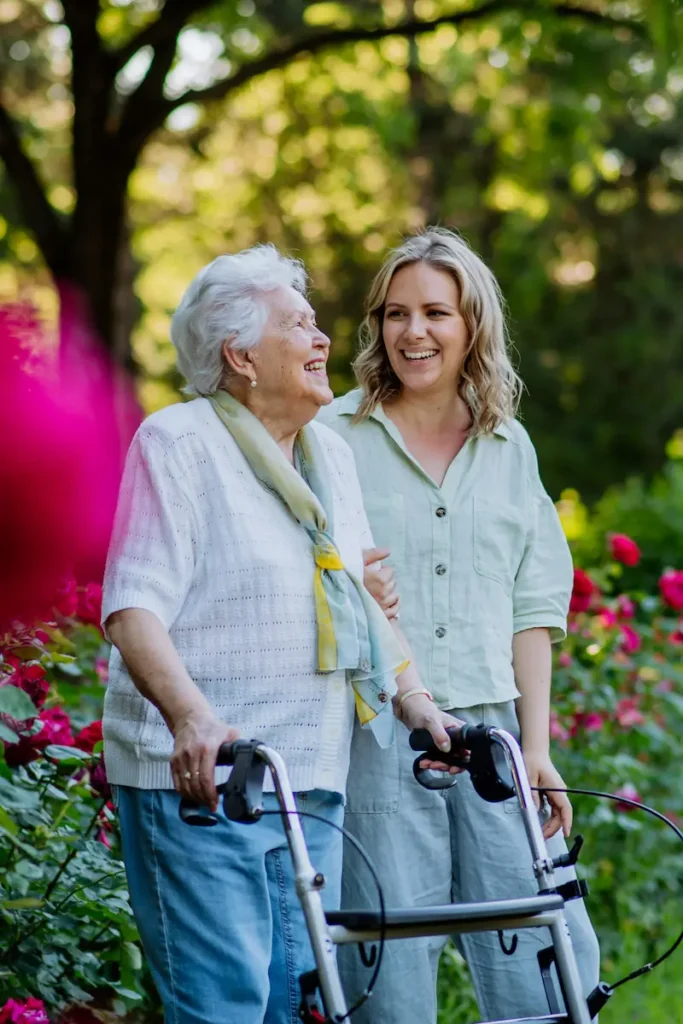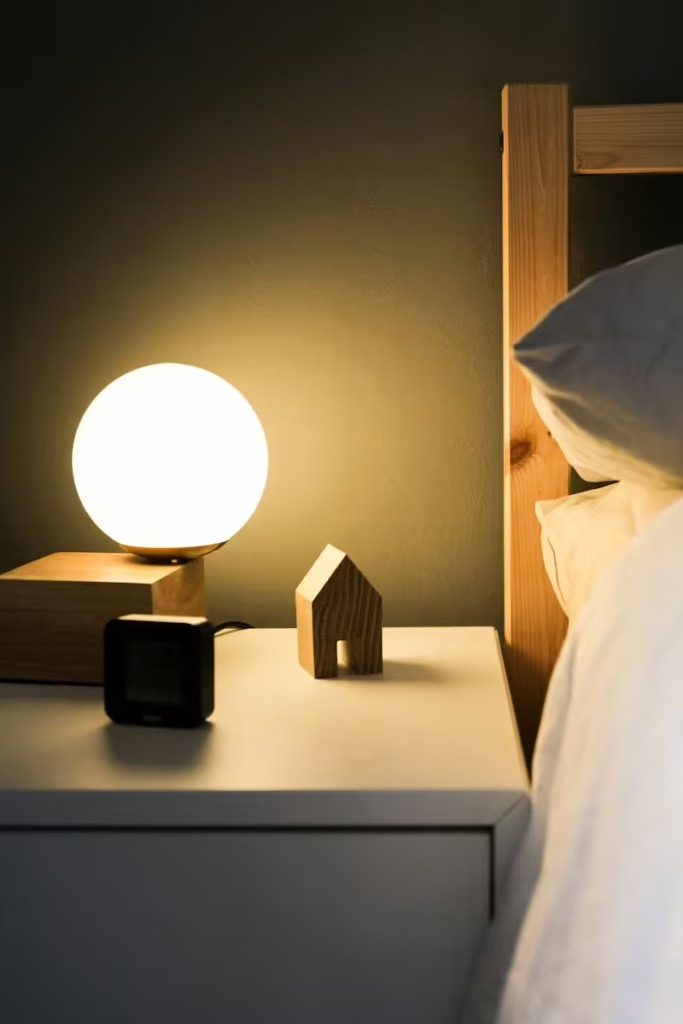Choosing live-in care means finding support that also brings peace of mind, independence and quality of life. With a carer in the home, daily life feels more secure and less pressured. Essential needs such as medication management, mobility, and personal care are taken care of, while focusing on hobbies, companionship over meals, and setting up a video call with family, make every day feel richer.
All these aspects of the care provided, as they happen, are also available online to Next of Kin or official advocates through our digitised system. This means that relatives who may live far away can be at ease or comment on the care being provided, and the care plan details. Here’s what a typical day might look like when someone is supported by a VersaCare carer.
Morning
The morning begins at a pace that suits the individual. Some people prefer an early start, while others take things slowly. A carer assists with getting up, washing, dressing, and any continence care, including providing catheter or stoma care, always with dignity and respect.
Medication and basic health checks are an important part of the morning routine. Whether it’s managing medications or ensuring blood pressure is taken at the right time, adjusting physical positioning according to ability and time of day, our trained carer makes sure everything is done correctly, avoiding missed doses or confusion.
Breakfast is both nourishment and an opportunity to begin the day well. For one person, that might mean porridge and fruit, for another just a cup of tea and toast. Sitting down together for breakfast also provides companionship and a reassuring rhythm to the day.
If mobility exercises or stretches are part of the care plan, these may be carried out in the morning when energy levels are higher. Gentle activity helps maintain strength, flexibility, and confidence in moving around the home.


During the Day
Alongside personal support, live-in care helps keep the home running smoothly. The carer manages light housekeeping, laundry, and grocery shopping if needed. A safe, tidy environment helps reduce falls and makes life more comfortable.
The care is also about meaningful engagement. Our carers will encourage activities suited to the individual’s interests and abilities. For one person, this might be tending to houseplants, for another it could be listening to music, reading together, or completing a crossword.
If there are medical appointments or social activities, the carer supports with getting you to and from the appointment or activity, as well as support while you’re there. This helps maintain important connections and makes sure healthcare needs are never neglected. And for families who live further away, our digitised care system allows instant access to all aspects of the care, carers can set up video calls, keeping everyone in touch and easing feelings of isolation.
Afternoons often blend rest and activity. Some people enjoy a walk outside, even if it’s just around the garden, while others prefer a hobby indoors such as knitting, puzzles, or catching up on the latest TV series.
Carers provide gentle encouragement to stay active without pushing too hard. They are trained to spot signs of fatigue or discomfort and adapt plans as needed. This balance between independence and support helps the person being cared for feel involved in their own day, while never feeling pressured.
Companionship is central here. Having someone to talk to, share stories with, or even just sit alongside during quiet time makes a significant difference to emotional well-being.
Evening
As evening approaches, the carer prepares a nutritious meal based on dietary needs and personal preferences. Shared mealtimes, if possible, are not only about health but also about reducing loneliness and creating a sense of routine.
Evening medication is managed, and personal care is provided before bed, whether that’s bathing, changing into nightwear, or simply helping someone feel settled. Relaxation might involve listening to music, a favourite radio programme, watching TV, or reviewing the day with family.
This part of the day is about winding down and feeling comfortable, both physically and emotionally.
At this point in the day, the carer will also update the care log and publish these updates in the app so you’re always up to date with your loved one’s activities and health each day.


Overnight
During the night, the carer stays in a separate room but is available if needed. This might be to provide support with mobility, help to the bathroom, or reassurance during a restless spell. Privacy is respected, but there is comfort in knowing that help is always close at hand.
More than just care
What sets live-in care apart is how it blends the essentials with the everyday. Medication is given on time, health is monitored, and personal care is handled with professionalism. At the same time, sharing meals, chatting over the news, or helping arrange a family video call keeps normality, but above all the carer is available 24 hours, provides continuity, and is dedicated to a single client.
Live-in care focuses not only on support, but on enabling someone to live life their way, at home, with care that evolves as their needs do. With VersaCare, families know their loved ones are safe, supported, and still able to enjoy the routines and relationships that matter most.

